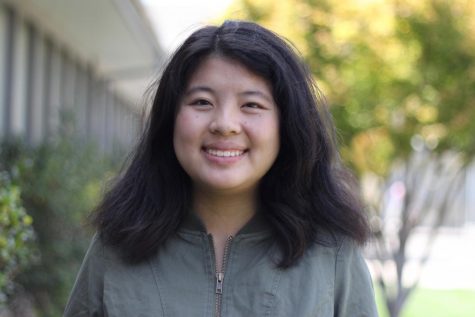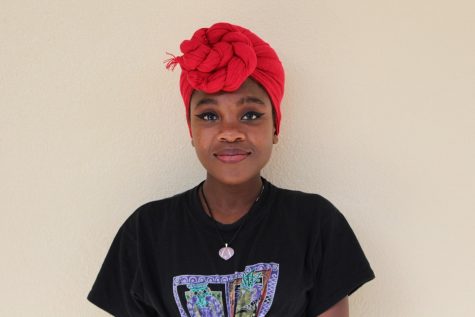Audrey Leong
December 11, 2017
Audrey Leong’s family communicates in four different languages: French, Cantonese, English and German. When her mom walks into the room, Audrey begins to speak French, switching just as quickly to Cantonese when her dad comes in and mixing French and English to speak to her brothers. The multilingual family has become accustomed to abruptly changing languages to communicate with one another, even adding in German phrases from a year spent living in Germany.
“The moment my mom comes in the room it’s French for sure, and if I need to talk to my dad I switch to Cantonese,” Audrey said. “We end up having a mix of French and Cantonese, and then we have a mix of French and English. There are some terms from different languages that we know that we specifically use, like whenever we say that we’re cold, we’ll use the German word for cold even if we’re speaking in French.”
Audrey’s proficiency in languages — she speaks French, Cantonese, English, Swedish, Korean, German and Latin — began out of necessity, since both her parents are bilingual, and she needed to learn German during her family’s year abroad. However, the influence of her German teacher and the realization that language learning came naturally to her created a passion for languages that has resulted in her role as a teacher at her German school.
“I had an awesome teacher and she knew seven languages, and she became my personal teacher when it came to German,” Audrey said. “She started bringing in Latin terms and ancient Greek terms that she’d studied before, and [she told me I] should keep learning it. Because [I was] fully immersed in the culture and the language and everything, I ended up learning German in about six months. You tend to like something better when you’re good at it.”
At her German school, South Bay Deutscher Schulverien (German Language school of the San Francisco South Bay) Audrey takes students through a series of units, giving tests on a variety of subjects, including color names, farm animals and clothing. This year, she transferred from teaching students that already knew German to students who had no prior experience.
“I’ve transferred to this new class, [so] there are a lot of students that are of Asian backgrounds or of Indian backgrounds because their parents thought [knowing German] was a good skill to have,” Audrey said. “[Because I’m teaching the class as a non-native speaker,] they think it’s actually possible [for their] child [to] also reach that level of fluency.”
However, while many parents are encouraged by her fluency in German, others are concerned that she is a non-native speaker. Some parents have mistaken her as a student rather than a teacher at her school, even in second grade classes.
“With [some] German parents, I get where their worries are coming from, and I get that I’m not a native speaker, but I have the qualifications to teach [their children] first and second grade material at the very least,” Audrey said. “It’s slightly annoying, I know they can’t really help it and that it’s not normal, but they don’t need to come up to me and ask me [if I’m] a student in the second grader class. I’m a teacher.”
As a freshman, Audrey assisted other students with their learning and motivated her classmates to speak in her AP French class, encouraging others with her fluency in the language.
“She was always engaged in conversation with other students in the classroom so she was motivating other students to speak,” French teacher Christophe Barquissau said. “She would [ask] questions constantly. That makes a big difference.”
For Audrey, a main motivation in learning languages has been the ability to learn more about a culture. She believes that learning more about how people in other countries think is essential to mastering any language, and her exposure to different languages has made her more accepting of cultural differences.
“I’ll get interested in a certain culture and how their words think, because culture is embedded into languages,” Audrey said. “Once you’re aware of how a culture thinks and how they work, it’s a lot easier to be accepting of different cultures and to be curious about other cultures. It’s important to be accepting of new people coming in regardless of what they think [or] what they believe.”




